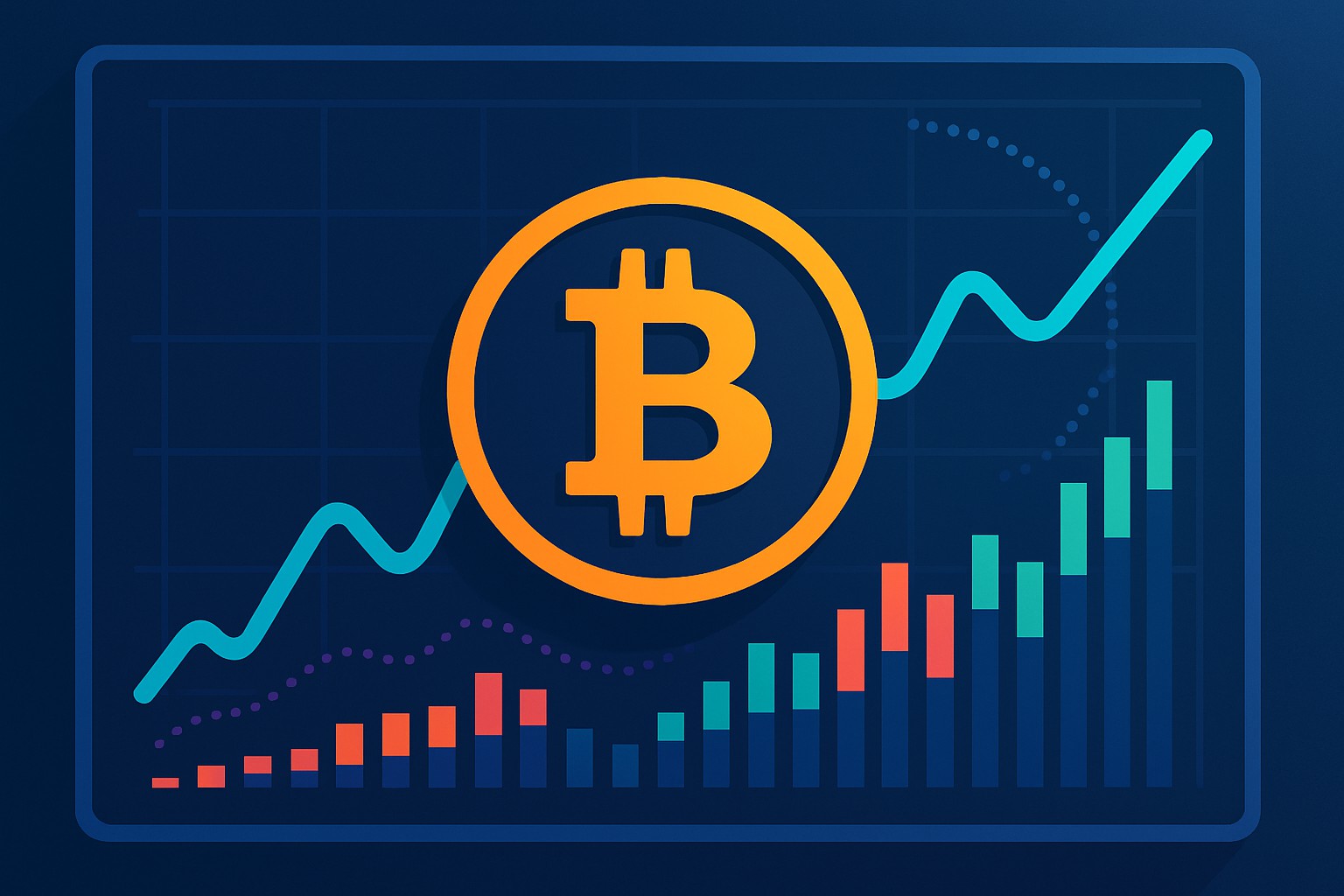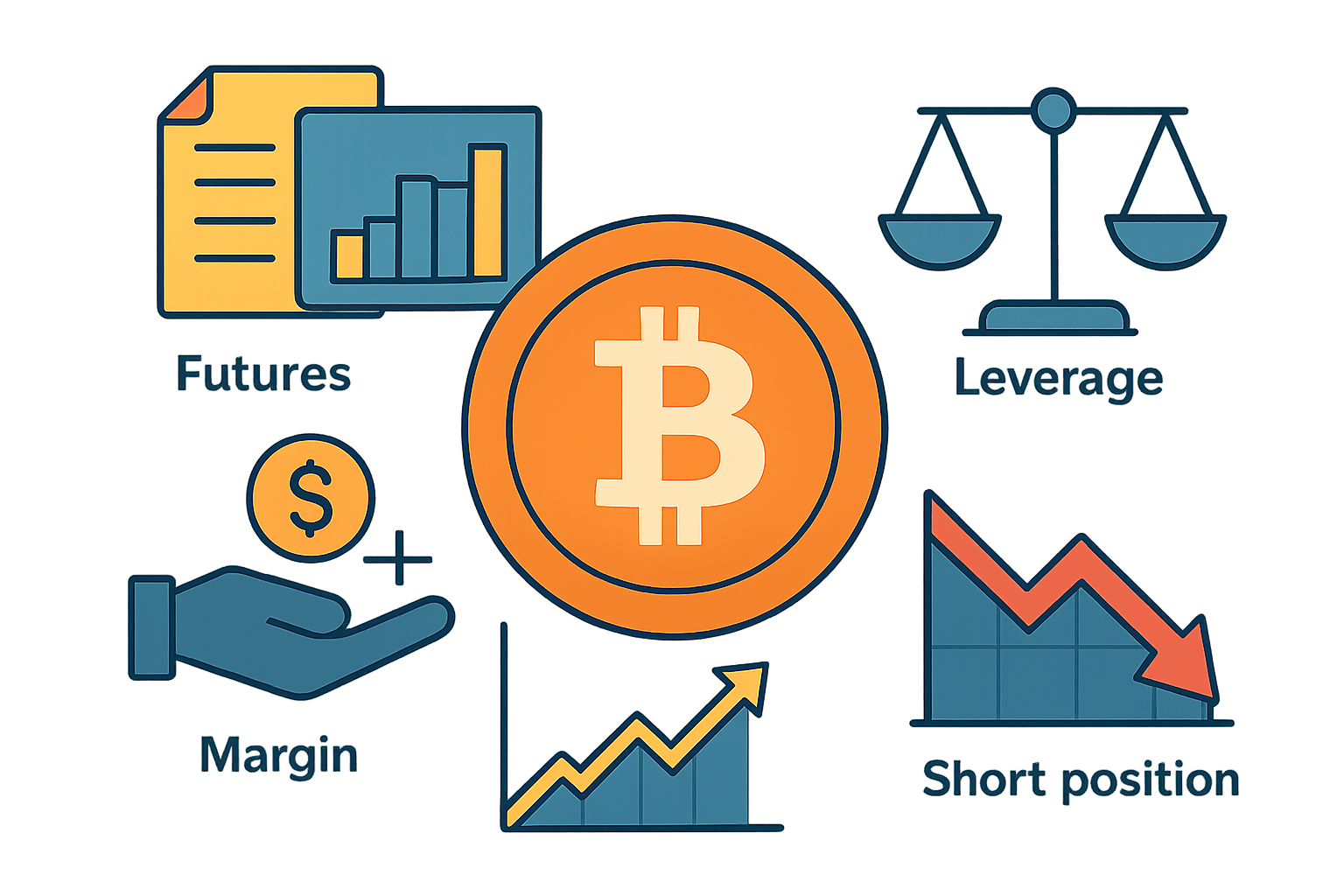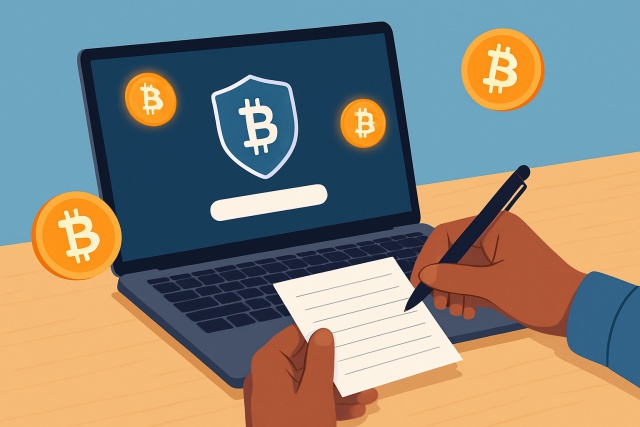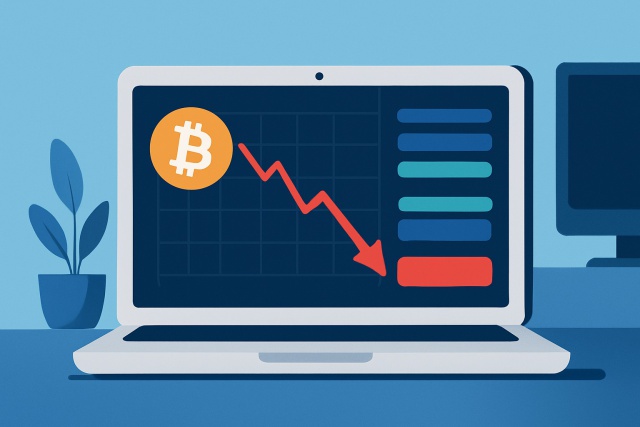Bitcoin Futures Trading Explained Simply


Bitcoin futures trading might sound thrilling yet it often feels like a tangled web for those dipping their toes in for the first time.
What Exactly Are Bitcoin Futures Anyway
A futures contract is an agreement to buy or sell an asset at a set price on a certain date in the future. Bitcoin futures work the same way but instead of a physical item they track bitcoin’s price. It lets you guess where bitcoin’s price could land in the future
- A futures contract is basically a deal to buy or sell an asset at a fixed price on a specific day down the road.
- Buyers and sellers sign up to trade bitcoin without actually having to own it right away, which means they don’t need a pile of cash upfront.
- Rather than holding bitcoin itself, futures let traders take a punt on price swings without ever touching the coin.
- Traders often lean on futures to hedge their bets or try to cash in on price moves in bitcoin, whether the market’s heading north or south.
Understanding How Bitcoin Futures Trading Really Works
Bitcoin futures trading involves signing up for a contract to buy or sell bitcoin at a pre-agreed price on some date down the road. Traders kick things off by putting down a margin—basically a slice of the total contract value—as a kind of good-faith deposit.
Start by choosing a bitcoin futures contract that catches your eye—check the expiry date and price to find the best fit for your game plan.
Next, deposit the required margin as collateral to open your position—it’s like putting down a security deposit before you dive in.
Time to make your move: go long (buy) if you’re feeling optimistic or short (sell) if you’re betting on a drop.
Stay on your toes by watching bitcoin’s price shifts closely and tracking how your position is holding up—no one likes surprises when money’s on the line.
Finally, you can close your contract early to lock in your gains or losses or hold tight and wait until expiry—sometimes patience really pays off.
How Bitcoin Futures Stand Apart From Spot Bitcoin Trading
Spot bitcoin trading basically means you buy and hold actual bitcoins on the spot, no waiting around. Futures trading is all about contracts that let you bet on where prices will head down the road, without actually owning any bitcoins yourself. Each approach comes with its own set of perks and pitfalls.
| Feature | Bitcoin Spot Trading | Bitcoin Futures Trading |
|---|---|---|
| Ownership | You actually buy and hold the real deal—bitcoins | You’re messing with contracts, not the coins themselves |
| Leverage | Usually not much leverage here, play it safe | Leverage can be sky-high, which might boost your gains (or losses) |
| Risk | Price swings hit the bitcoins you physically own | Risk dial turns up with leverage and margin—handle with care |
| Settlement Methods | Transfers happen pretty much instantly, and you get to keep your coins | Contracts settle either at expiration or whenever you decide to cash out |
Why Trading Bitcoin Futures Can Actually Work in Your Favor
- Leverage lets you handle bigger positions without needing a mountain of capital, which can really give your returns a nice little boost.
- Futures are commonly used as a way to hedge against bitcoin’s notorious price swings, helping to protect what you’ve already invested.
- You have the chance to pocket profits whether bitcoin’s price climbs or dips, simply by taking long or short positions.
- They often require less upfront cash than buying bitcoin outright, making it a bit easier on the wallet.
- Trading on regulated exchanges usually means greater transparency and security, which is something I’ve come to appreciate more over time.
Potential Risks and Challenges in Trading Bitcoin Futures What You Should Keep in Mind
Bitcoin futures have the potential to deliver impressive returns but they’re no stranger to serious risks. With the rollercoaster of volatility what looks like a win can flip into a loss before you know it. Throw leverage into the mix and those risks don’t just climb—they can skyrocket. This sometimes leads to margin calls or even forced liquidations.
- Bitcoin’s price can swing wildly and often catches even the savviest traders off guard. Sometimes it leads to hefty losses before you even know what hit you.
- Piling on too much leverage usually increases the risk of liquidation, especially if the market throws you a curveball.
- Futures contracts tend to be complex and require a solid understanding of how settlements work.
- Shifts in regulations can shake things up and affect how futures trading operates or whether it’s available at all. It pays to stay on your toes.
- Letting emotions or impulses drive your trades often ends up costing you in ways you wouldn’t have imagined.
Key Terms You Might Want to Know (Because Who Does not Like a Little Clarity?)
Bitcoin futures trading comes with its own set of terms that can feel overwhelming when you are just starting out. Wrapping your head around words like margin and leverage as well as long and short positions, settlement, expiry and contract size is absolutely key.
- Margin is the collateral you need to put up to open and keep a futures position, kind of like the deposit you make before taking a big step in trading.
- Leverage refers to borrowed funds that boost your trading exposure beyond just your margin, giving you a bit more muscle but also adding some extra risk.
- Contract Size shows exactly how much bitcoin one futures contract represents so you know what you’re really signing up for.
- A Long Position means you’re buying a futures contract because you’re betting the price will climb. Basically, you’re rooting for the market to go up.
- A Short Position means you’re selling a futures contract, hoping the price takes a dive instead. It’s a little less intuitive but can be powerful if done right.
- Settlement is the process of closing out a futures contract, either by offsetting it or settling up with a cash payment. It’s the final handshake, so to speak.
- Expiry Date is the day when a futures contract calls it quits and needs to be settled one way or another.
- Mark Price is the price used to figure out unrealized gains and losses. It’s designed to keep things fair and avoid any funny business with price manipulation.

A Straightforward Guide to Jumpstarting Your Bitcoin Futures Trading Journey
Start by finding a futures trading platform you can trust—one that secures your account tightly and has plenty of positive reviews from real users.
Next, sign up and complete the identity verification process to check off important KYC and regulatory requirements.
Take time to understand the margin requirements and trading rules for bitcoin futures on your chosen platform. It pays off to know the details.
Fund your account using your favorite payment method—whatever works best for you.
Choose a bitcoin futures contract by looking at the expiration date and leverage options. Make your choice carefully.
When it comes to leverage, take it slow and steady. Pick an amount that won’t make you nervous if the market moves unexpectedly.
Decide whether you’re feeling bullish and want to go long or cautious and prefer a short position, then place your trade.
Stay alert by monitoring your position closely. Set up alerts for any price swings or margin calls that might surprise you.
When the time comes, close your trade manually or let it run until it settles automatically at contract expiration.
It’s a good idea to start small and dip your toes in with demo accounts whenever possible. Truly get a handle on the risks before putting real money on the line. Steer clear of the temptation to chase losses and make sure to set stop-loss orders.
Key Approaches and Tips for Bitcoin Futures Traders That Actually Make a Difference
Successful bitcoin futures traders usually put a lot of stock in managing risk and staying disciplined—two halves of the same coin, so to speak. They rely on stop-loss orders to keep losses from getting out of hand, and they’re pretty meticulous about position sizing to make sure their exposure doesn’t spiral out of control. Keeping a finger on the pulse of market trends and staying well-informed is key, making it easier to pivot as conditions shift.
- Set clear risk limits before jumping into any trades to protect your hard-earned capital. Think of it as your safety net.
- Spread your trades across different assets so you’re not putting all your eggs in one basket. This helps cushion against sudden market swings.
- Combine technical analysis like charts and indicators with fundamental news to make well-rounded trading calls that keep you from guessing.
- Stay in the loop with bitcoin updates and global market news because prices can change faster than you can blink.
- Be careful with leverage since it’s a double-edged sword that can boost profits but also amplify losses. So tread lightly.
- Experiment with demo accounts first. It is a low-risk playground where you can sharpen your skills and gain confidence before risking actual cash.
Frequently Misunderstood Aspects of Bitcoin Futures Trading—Clearing Up the Confusion
A lot of individuals tend to see bitcoin futures trading as either a roll of the dice or something only finance gurus can handle. Some jump to the conclusion that it promises easy profits, while others worry the risks are so steep that only seasoned pros should even think about it.
- Trading bitcoin futures is more than just a roll of the dice. It requires a thoughtful game plan and some solid homework.
- Even beginners can get the hang of it with patience and the right set of tools.
- Downswings can and do happen just like the good times.
- You don’t need to actually own any bitcoin to jump into trading its futures contracts.
- You have a shot at making profits by going long or short.
Conclusion So Is Bitcoin Futures Trading Worth a Second Look?
Bitcoin futures trading offers a neat way to speculate on bitcoin's price without owning the cryptocurrency. It works best for traders who understand leverage risks and are comfortable with volatility and learning market research. Paired with solid risk management, bitcoin futures can play a handy role in a well-rounded investment strategy. Beginners should start small to get a feel for the market and only then consider increasing exposure.
Start Your Crypto Journey with Coinbase Today
Ready to enter the cryptocurrency market but unsure where to begin? Coinbase makes buying, selling, and storing digital assets simple and secure for beginners and experts alike.








